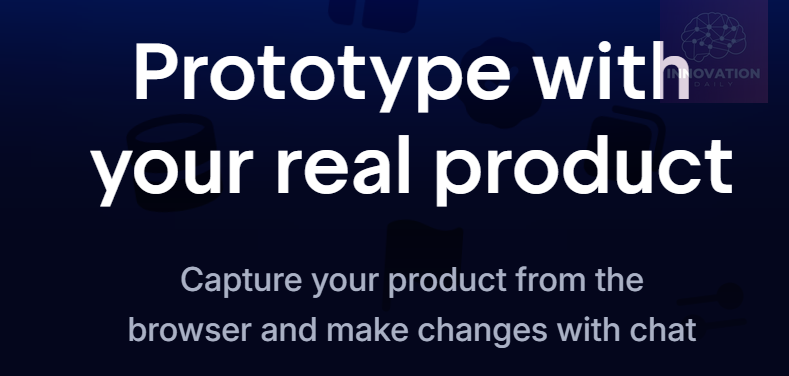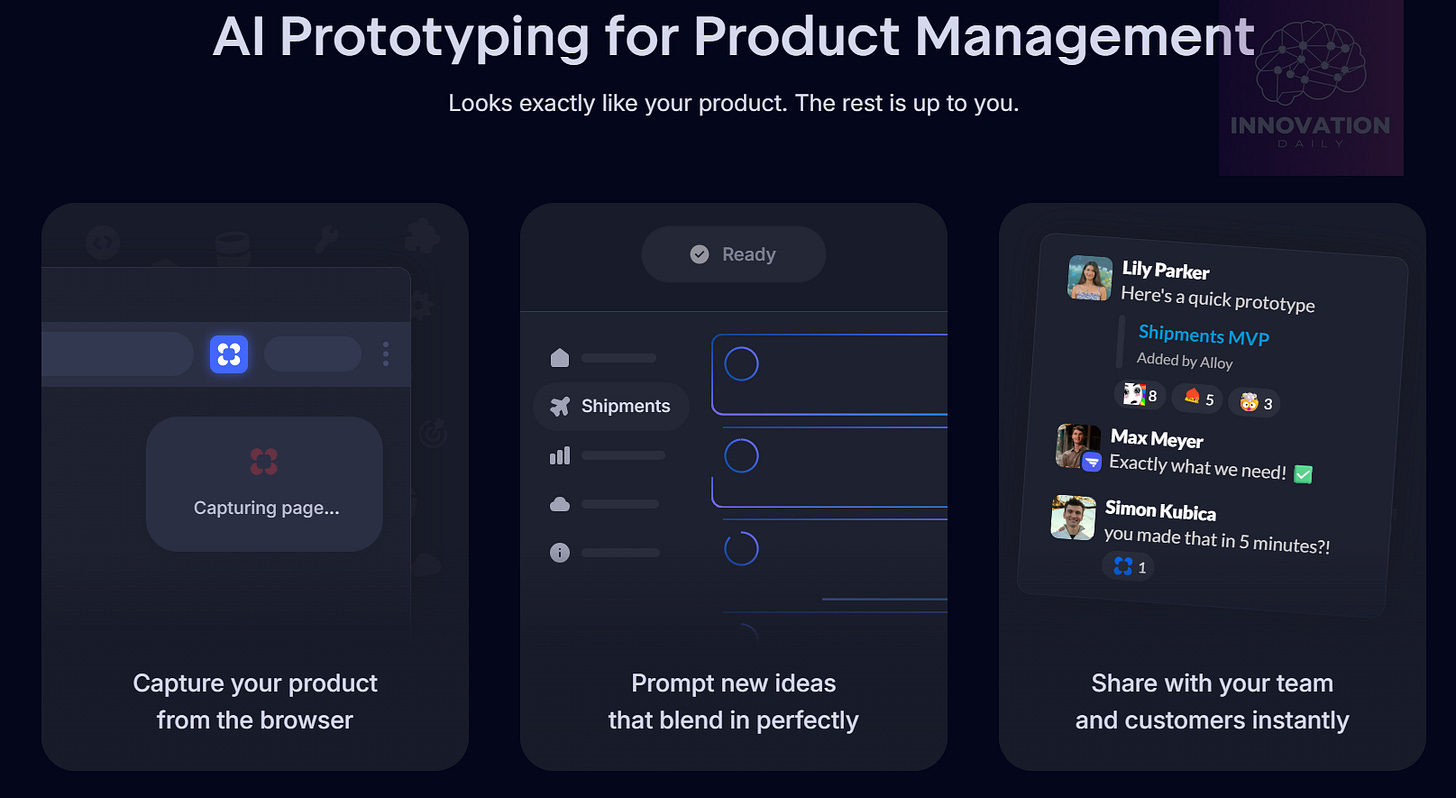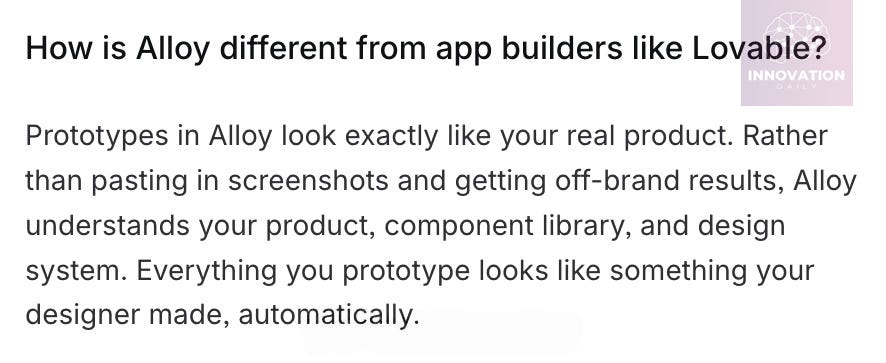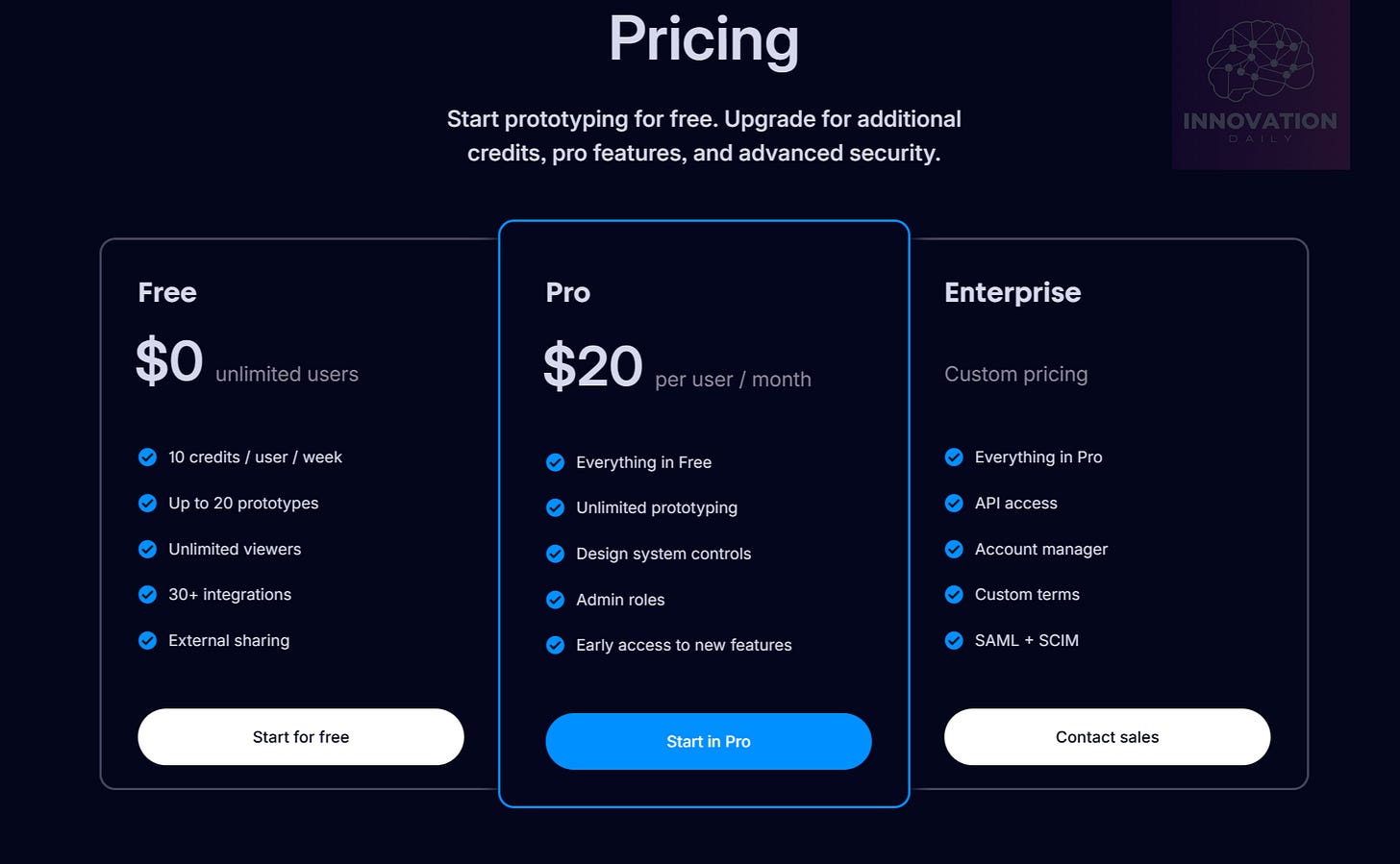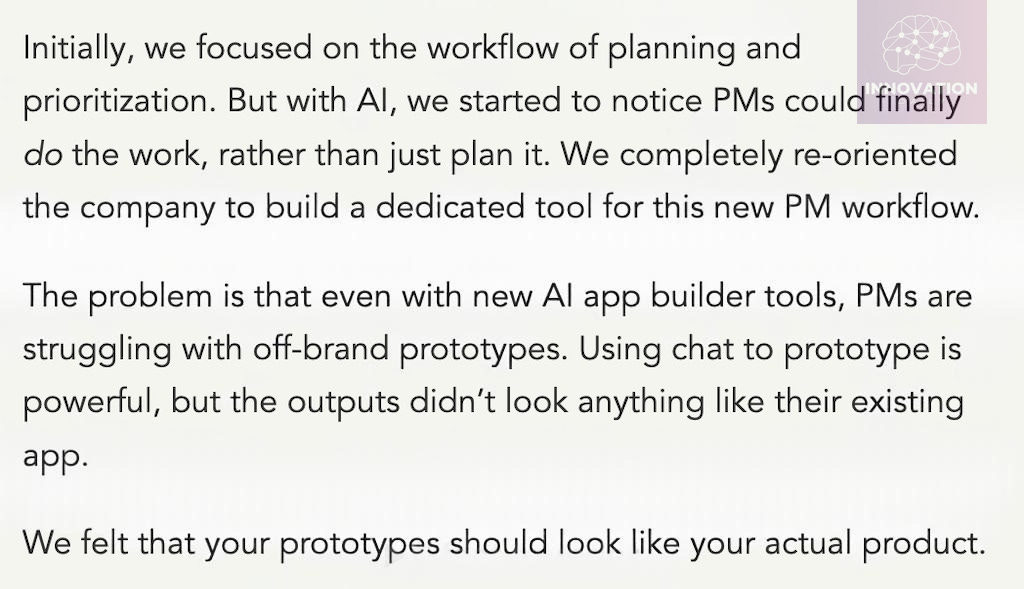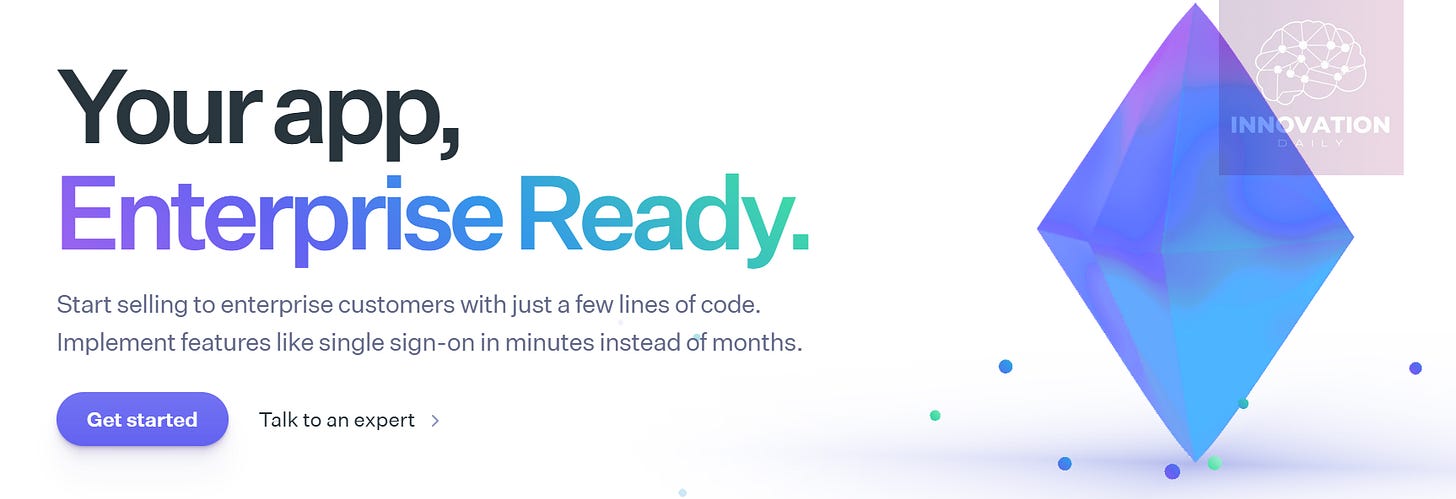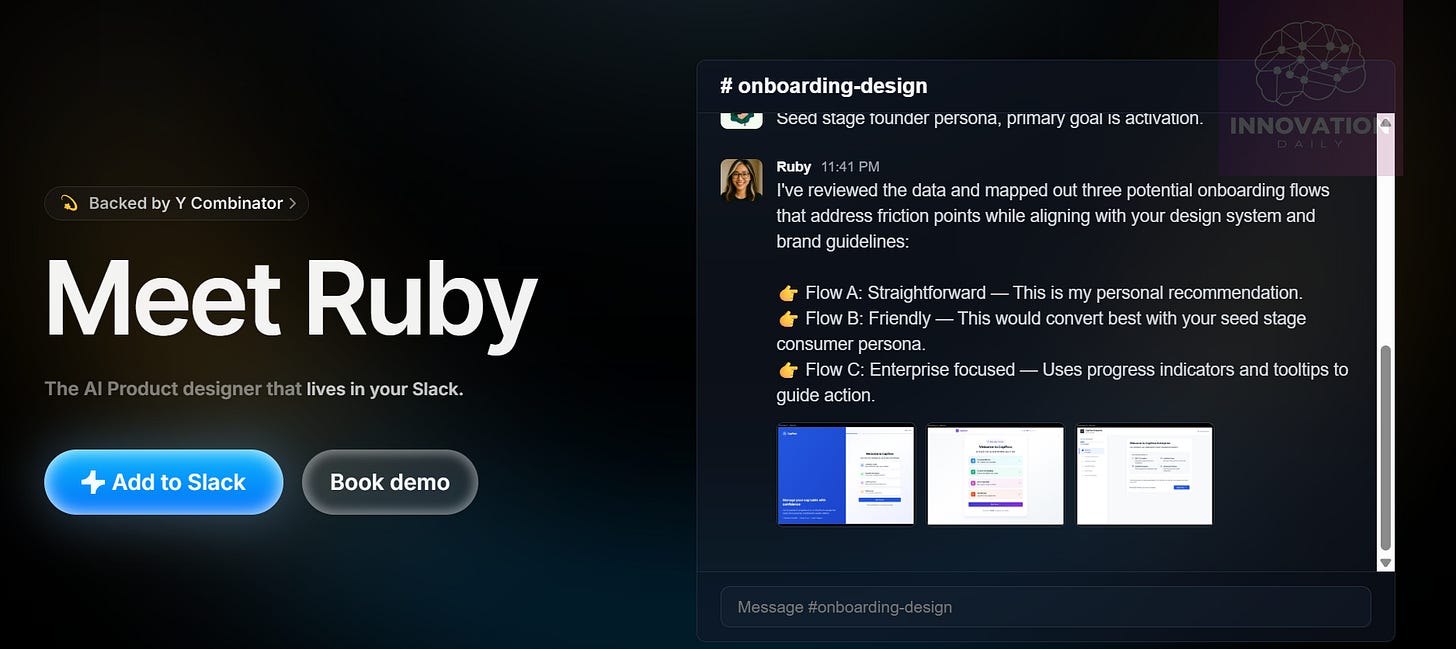The New Era of Product Management
Today's featured startup helps product managers move from strategy to creation — building interactive prototypes that mirror real products
Project Overview
Alloy is an AI-powered prototyping platform that lets you design new pages for existing digital products — but with a crucial twist. Unlike other AI builders such as Lovable, Alloy doesn’t generate random designs “inspired by your idea.” It analyzes the actual design system and component library of your product — and then builds new pages that look and feel exactly like the original.
This means Alloy doesn’t just imagine your product. It understands it.
Interestingly, the platform doesn’t even show you the generated code — you can’t export it. Instead, Alloy outputs live, interactive browser pages where you can click, type, and navigate just like in the real product.
Why? Because Alloy isn’t built for developers. It’s built for product managers.
With Alloy, PMs can quickly prototype new features to discuss with their teams or test with real users — without writing a single line of code. After installing a browser extension, Alloy studies the product’s design system and UI components, allowing users to request changes through natural-language prompts.
When the prototype is ready, PMs can share links with teammates or customers for hands-on feedback. Viewing is free; creating costs $20 per month per user.
The startup went through Y Combinator (Winter 2023) and raised A$3.5M (~US$2.2M) earlier this year. The latest version — launched just days ago — is already gaining traction among PMs at top companies and fast-growing startups.
What’s the Gist?
Originally, the team built a planning tool for product managers — helping them organize roadmaps and delegate design or development tasks.
But the rise of “vibe coding” changed everything. Platforms powered by AI made it possible for PMs to create, not just coordinate. The startup pivoted to match that shift — turning into a tool that lets product managers build and test new features themselves, while keeping the product’s design and structure perfectly intact.
They’re part of a broader movement shaping how digital products evolve. WorkOS helps any SaaS become enterprise-ready through simple API integrations. Among others, Ion Design (YC Winter 2024) uses AI to analyze user journeys, generate UX improvements, and produce code compatible with existing repositories. Swish transforms e-commerce sampling by embedding directly into order flows — automatically choosing and adding trial products without breaking existing systems.
Each follows the same principle:
Don’t replace what works — extend it.
Their AI doesn’t invent in isolation. It builds on top of what already exists, keeping innovation grounded in real products and processes.
Key Takeaways
Every business — from solopreneurs to global enterprises — operates on top of established processes, tools, and infrastructures.
That’s why even the most innovative software can fail: it’s not about what it does, but whether it fits.
The most successful platforms today, like WorkOS or Swish, have one thing in common — they integrate seamlessly into what already exists. WorkOS made it easy for SaaS startups to plug into enterprise authentication systems, raising $95M in the process. Swish revolutionized e-commerce sampling by embedding directly into store workflows without friction.
Alloy and Ion Design are part of this same movement. Their AI doesn’t replace — it augments. It builds new value atop what’s already working.
The lesson?
The future of business software isn’t about starting over — it’s about evolving the systems we already have.
So if you’re building a new product, ask yourself:
How do your users work today?
What’s the smallest change that would make that work better?
And how can your tool plug into that flow — instantly, elegantly, and painlessly?
That’s where the real innovation happens.
Company Info
Alloy
Website: alloy.app
Total Funding: $2.7M across 2 rounds



